Forward neck does more than strain your neck. It affects breathing and increases stress load in nervous system. Increase your awareness to avoid wear and tear in your body and avoid fatigue.
Do You Feel Drained After Screen Time?
What if your screen habits are silently draining your energy, disturbing your mood, and hijacking your ability to focus? The hidden culprit may not just be your posture. Your breathing may be the root cause.
How Forward Neck Impacts Breathing and Stress
Looking down to read, text, write, or scroll triggers shallow, rapid, chest-dominant breathing, which causes CO2 depletion. This creates a stress response in your nervous system and affects:
- Energy and stamina
- Emotional balance
- Focus and memory
- Muscle tension
- Sleep quality
- Oxygen delivery to the brain
Symptoms Linked to Forward Head Posture and Breathing Dysfunction
“Read more about how CO2 affects nervous system health.”
When posture and breathing fall out of sync, the effects ripple across your health:
- Chronic neck and jaw tension
- Brain fog or disorientation
- Unexplained fatigue
- Restlessness or anxiety
- Irritability and mood swings
- Vision strain or light sensitivity
- Poor posture awareness
- Reduced oxygenation and blood flow
- Depression-like symptoms
Surprisingly, these symptoms are rarely traced back to something as simple as breath and CO2 balance.
Forward Neck Posture, Inflammation, and Blood Sugar Dysregulation
Chronic forward neck posture, often called "tech neck," does more thatn cause pain or stiffness. When the head moves forward, the spine and airway compress, reducing oxygen and carbon dioxide balance, impairing blood flow to the brain and vital organs, and triggering sympathetic overactivation (figh-or-flight). This state of ongoing physiological stress increases the release of stress hormones such as cortisol and adrenaline, which promotes inflammation, insulin resistance, and eventually metabolic dysfunction.
Over time the continuous low-grade inflammation from poor posture and restricted breathing can disrupt how the body regulates glucose, leading to elevated blood sugar levels and contributing to Type 2 diabetes risk. The forward head position and overall poor posture limit the efficiency of diaphragmatic breathing coordination, decreasing CO2 tolerance and oxygen delivery. There are the two key regulators of cellular function and mitochondrial efficiency. Let's take a deeper dive into mitochondria function and dysfunction: Mitochondria are tiny powerhouses of the cell. They convert oxygen and nutrients from the food you eat and how you breathe into energy (ATP), which is the fuel that powers every organ, muscle, and brain cell. When mitochondria functions properly, your body has the energy to heal, detoxify, and regenerate tissues. But when they become stressed from poor breathing, chronic inflammation, or low oxygen delivery, energy production drops. This leads to fatigue, brain fog, pain, hormonal imbalance, and slower healing.
Stress, poor posture, improper breathing with low CO2 will invariably affect the way your body functions, creating health problems like Type 2 diabetes from the low-grade stress is created by faulty mechanisms of function. We are not up to date yet on the effect of the neck postural stress and improper breathing that creates ongoing inflammation, affecting glucose metabolism.
rECOMMENDATIONS
Align your head and spine
Ajust your screen height so your eyes are level with the top third of the computer monitor. .
Support your lower back
Place a small pillow behind your low back to preserve the natural lower back curvature. Proper aligment reduces the strain caused by the forward neck.
Move every 30-45 minutes
Static posture can trigger fatigue due to poor circulation. Consider standing, or stretching between tasks. Roll your shoulders backwards while retracting your shoulder blades gently.
Tilt your head back gently
This will help modify tension in your neck, but it will take the edge off the stress on the vagus nerve, which is the main nerve controlling your heart rate, digestion, and relaxation response. If there is no proper self-care and self-maintenance, your neck can trigger a chain reaction of stress signal that can cause you to get stuck in fight-or-flight mode without your consent or knowledge. Over time, this can lead to blood pressure issues, glucose metabolism problems, poor sleep, fatigue, depression, anxiety, teeth clenching, and poor cognitive performance.
Walking helps
Walking is perhaps the best exercise you can do for health maintenance. Keep your chest open and let your arm swing naturally. Consider keeping your neck in alignment with your shoulders, and place the weight support on your hip muscles. Lead your gait with your glutes intead of using your head and shoulders.
New Paradigm:
- Breath With CO2 Balance To Rewire Your Physiology
- Traditional advice says good posture leads to good breathing. But here’s the truth:
- When you master adaptive breathing, your body stays balanced regardless of posture, context, or stress levels.
Conclusion:
Posture isn’t just about your spine. it’s also about how your breathing affects your physiology.
By simply adjusting how you breathe while using your devices, you can calm your stress response and restore mental clarity and physical energy.
Undoing breathing behaviors can require a dedicated CO2 breathing therapy, one that provides clear guidance, and support to create permanent results.
Respiras supports resilience, performance, and true healing. Contact us if you would like to know more how we can help.













